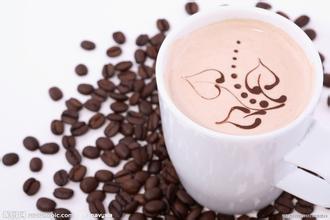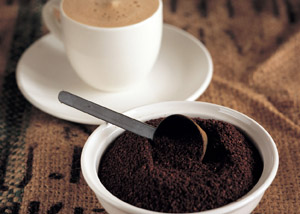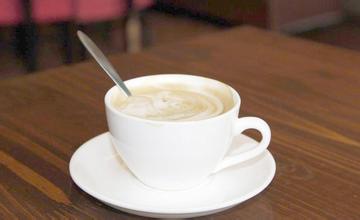Panamanian Jade Manor Coffee Flavor description Grinding degree Taste characteristics Fine Coffee introduction
Panama is rich in forest resources and has many tree species, including valuable wood such as mahogany, cedar, teak, mahogany, and cedar. The forest area of eastern Dalian Province is the most widely distributed, but it has not been fully developed due to lack of market and for reasons such as national defense and protection of the natural ecological environment. [5] according to FAO estimates in 2010, the forest area of Panama is 4.29 million hectares, accounting for 57 per cent of the land area. The Panamanian flag was launched on November 3, 1904. The flag is rectangular and the ratio of length to width is 3:2. The flag consists of four rectangles of white, red and blue. White symbolizes peace; red and blue represent the former Panamanian Liberal Party and the Conservative Party respectively, and they are also symbols of the two parties' United struggle for the interests of the nation. The blue star on the white background at the top left represents loyalty and integrity, while the red star on the white background at the lower right represents the authority of the law. The design of the crosshairs divided into four pieces represents that Panama is located at the junction of South America, North America, Atlantic and Pacific Ocean. Red, blue and white are the colors of the American Stars and Stripes that support the independence of Panama. The national flag was designed by Manuel Amador Guerrero, the first president of Panama, and the current constitution of Panama entered into force on October 11, 1972, after four amendments in 1978 and 1983, 1994 and 2004. The Constitution stipulates that the three powers of the state are separated and that the President is the head of state and shall be elected by direct election for a term of five years without re-election, but may run for another term. On October 4, 1994, the Pakistani parliament stipulated the abolition of the army and the establishment of a police force. In October 2004, the Constitution made another important amendment, requiring the National Assembly to change its name to the "National Assembly"; the Constituent Assembly as the third way to amend the Constitution; abolishing the post of Vice President; and members are free to nominate for election. Each member retains only one alternate.
In the Pokuit producing area, there are also many excellent manors, except the famous Emerald Manor, Alida Manor, Aqaba Manor and so on, all of which produce high-quality boutique coffee. This is not only due to the superior ecological conditions of the Pokuit region of Panama and the fertile volcanic ash soil of the Baru volcanic land. Another important factor is that the microclimate in the Poquet Heights of Panama is a unique and important resource for boutique coffee in the Pokuit region. This is the Panamanian environment from east to west that allows cold air to converge above 6500 feet through the Central Mountains, thus creating a variety of microclimates in the Pokuit region, making its temperature and rainfall very suitable for plant growth. so the coffee trees grown here grow very well.
In Poquet's unique planting environment, there is naturally not only the rose summer of emerald, the king of coffee, regardless of flavor, quality and value, but I think it is quite extravagant to drink rose summer every day, and even if there is no economic pressure, it is not like eating shark's fin and bear's paw every day. The same is true of coffee. Only by dabbling in a wide range of subjects can you enjoy the pleasure of tasting coffee more.
Then in the land of Pokuit, there is a bean with a high performance-to-price ratio. And it has a very beautiful name-Flower Butterfly. She has 40% high-quality Rosa pedigree, which is composed of Rosa, Kaddura and Kaduai. It is planted in the Baru volcano region of Pokut and grows in the volcanic area at an altitude of 1600 meters. The treatment plant uses fine washing treatment. Panama's special local microclimate leads to abundant rainfall in this area, and a large temperature difference between day and night, coupled with the unique volcanic rock and soil of the volcanic area, as well as meticulous harvesting and fine treatment. What makes this coffee excellent in terms of thickness, acidity and flower aroma is that, on the basis of very excellent quality, the very people-friendly price makes this coffee bean cost-effective. What is special about this coffee bean is that it is made up of three varieties, of which 40% are rosy summer varieties, giving this coffee a distinct rosy summer flavor. According to the information obtained, due to the historical reasons of the manor, in order to pursue yield at that time, the early Rosa varieties were mixed with the coffee trees of Kaddura and Kaduai, and in order to facilitate picking, coffee farmers did not reclassify them, but directly mixed the three varieties. After that, as Rosa rose to fame and the price soared, the processing plant began to carry out fine washing treatment for such a coffee bean.

Important Notice :
前街咖啡 FrontStreet Coffee has moved to new addredd:
FrontStreet Coffee Address: 315,Donghua East Road,GuangZhou
Tel:020 38364473
- Prev

Sour, sweet and mellow coffee flavor description of Atlanta Manor Coffee in Jamaica
The design of the Jamaican national emblem shows a pair of male and female Arawak (indigenous Indians), the male holding the bow and the female holding a basket of pineapples, standing on both sides of the shield; the shield is painted with a Red Cross inlaid with five golden pineapples, the shield is decorated with crocodiles perched on the crown and cloak, and the yellow ribbon reads the Jamaican national motto: the air of the city is clean and the road is complete.
- Next

Description of Coffee Flavor in Santa Cruz Manor, Ecuador; introduction to the characteristics of fine coffee
The minerals are mainly oil, mainly distributed in Guayaquil Bay, and oil fields are also found in the Amazon Plain. Gold and silver are distributed in Machaki and Saluma and other places. Copper is made in Machaki. There are sulfur mines in the Cologne Islands. In addition, there is iron, lead and so on. The forest area accounts for about 68% of the country's area, mostly in the eastern region, rich in valuable wood, such as mahogany and ointment.
Related
- Does Rose Summer choose Blue, Green or Red? Detailed explanation of Rose Summer Coffee plots and Classification in Panamanian Jade Manor
- What is the difference between the origin, producing area, processing plant, cooperative and manor of coffee beans?
- How fine does the espresso powder fit? how to grind the espresso?
- Sca coffee roasting degree color card coffee roasting degree 8 roasting color values what do you mean?
- The practice of lattes: how to make lattes at home
- Introduction to Indonesian Fine Coffee beans-- Java Coffee producing area of Indonesian Arabica Coffee
- How much will the flavor of light and medium roasted rose summer be expressed? What baking level is rose summer suitable for?
- Introduction to the characteristics of washing, sun-drying or wet-planing coffee commonly used in Mantenin, Indonesia
- Price characteristics of Arabica Coffee Bean Starbucks introduction to Manning Coffee Bean Taste producing area Variety Manor
- What is the authentic Yega flavor? What are the flavor characteristics of the really excellent Yejasuffi coffee beans?

